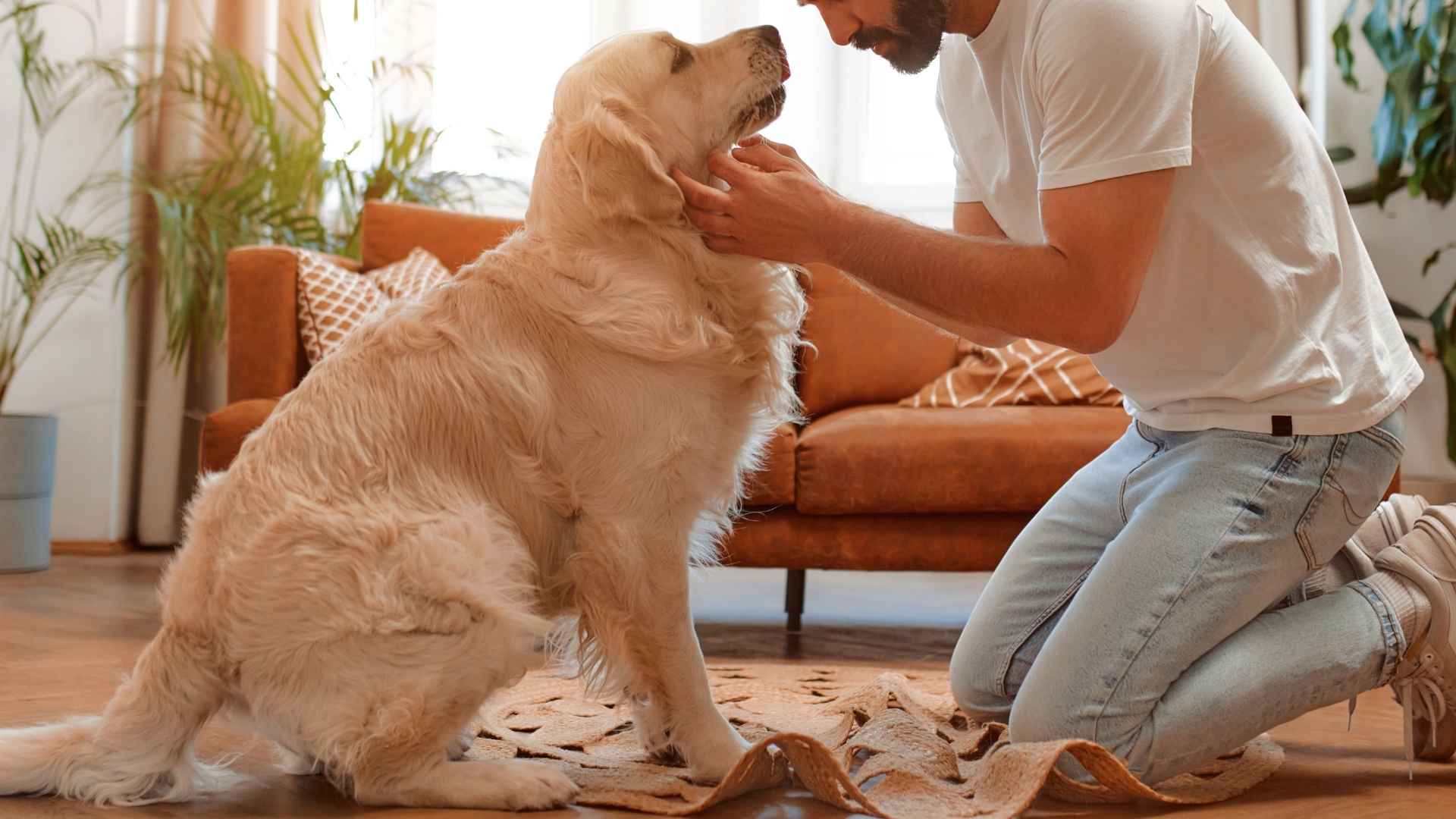Dogs have an extraordinary ability to bond with humans, offering companionship that goes far beyond wagging tails and playful barks. Some breeds, however, are especially known for forming deep emotional ties, tuning into their owners’ moods, and becoming steadfast sources of comfort.
These dogs don’t just live alongside people; they thrive on closeness, often acting as furry emotional anchors in both good times and bad.
Whether you’re looking for a loyal snuggle companion, an intuitive companion who seems to sense your stress, or a dog who thrives on being part of every moment, certain breeds stand out for their heart-to-heart connections.
In this article, we’ll explore the seven best dog breeds celebrated for their strong emotional bonds, diving into what makes each of them uniquely suited to be more than just pets; they’re true partners in life.
Best Dog Breeds With Strong Emotional Ties
1. German Shepherd
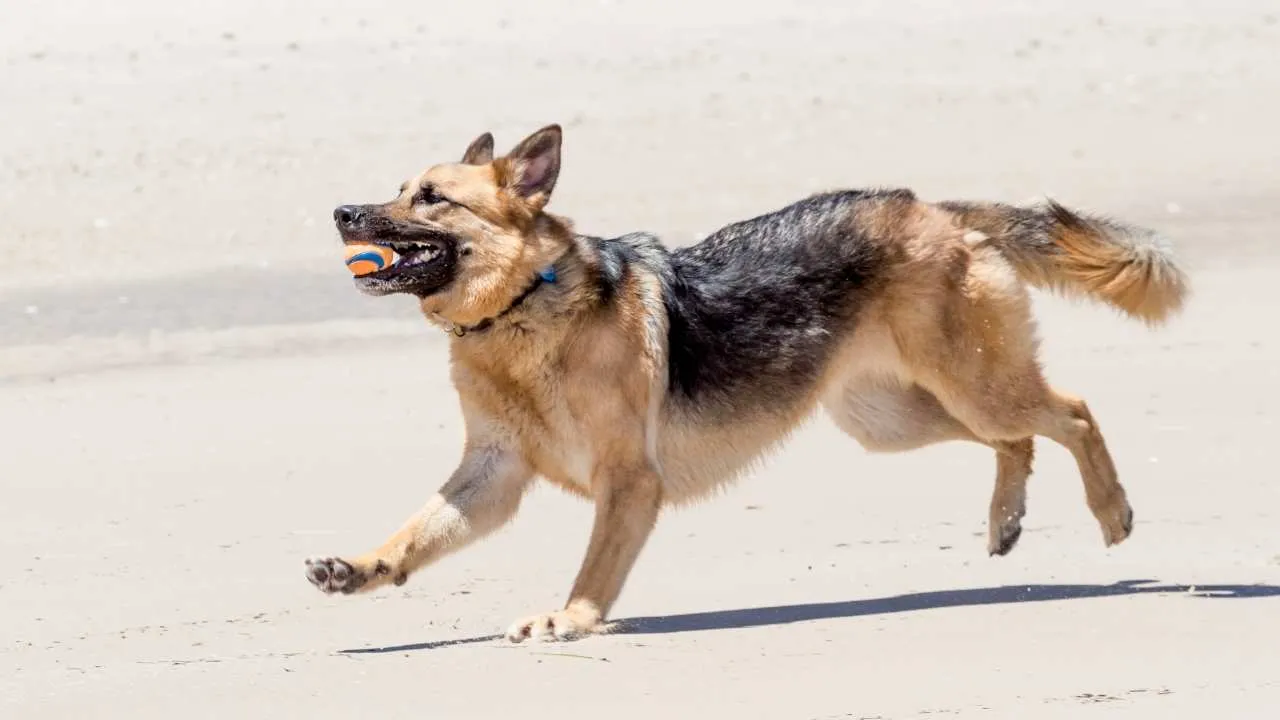
German Shepherds are widely admired for loyalty and courage, but they’re also deeply sensitive to their owners’ emotions. They are notably perceptive and can often detect changes in their owner’s mood through facial expressions, tone of voice, or body language.
Many will respond by leaning in, resting their head on a lap, or quietly staying close, showing how emotionally attuned they are to their families.

This breed thrives on purpose. Whether it’s agility training, obedience, or simply learning new tricks, they love engaging in tasks that build trust and strengthen bonds.
Affection comes in subtle ways, leaning against you, following you around, or holding long eye contact. These behaviors reflect how closely they attach to family members as per the GSD Colony.
Despite their confident appearance, German Shepherds can be surprisingly sensitive. They pick up on voice tone and body language, making them excellent therapy and emotional support dogs.
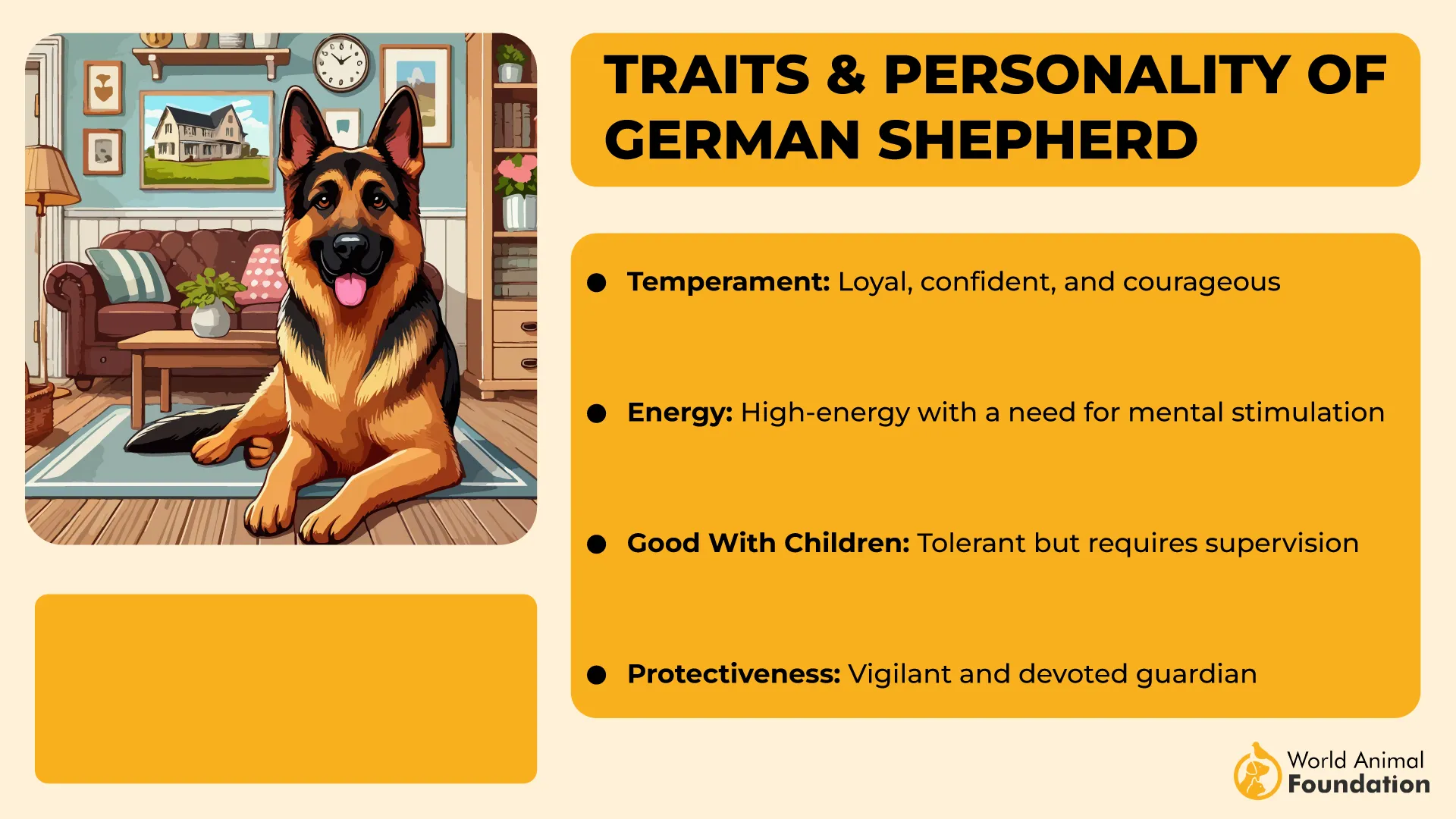
Because they bond so strongly, they dislike being left out. Long periods alone can stress them, so they flourish most when fully included in daily life.
Quick Tips
Challenge their minds with training or puzzle toys.
Keep them involved in daily routines and family time.
Show steady affection—they thrive on consistency.
2. Cavalier King Charles Spaniel

The Cavalier King Charles Spaniel is often described as a true “companion dog.” They are affectionate to their core, known for forming unusually close emotional bonds with their owners.
These small dogs love constant closeness. PDSA states that many Cavaliers are happiest when curled up in a lap, making them natural comfort-givers and ideal for families wanting a loyal pup.
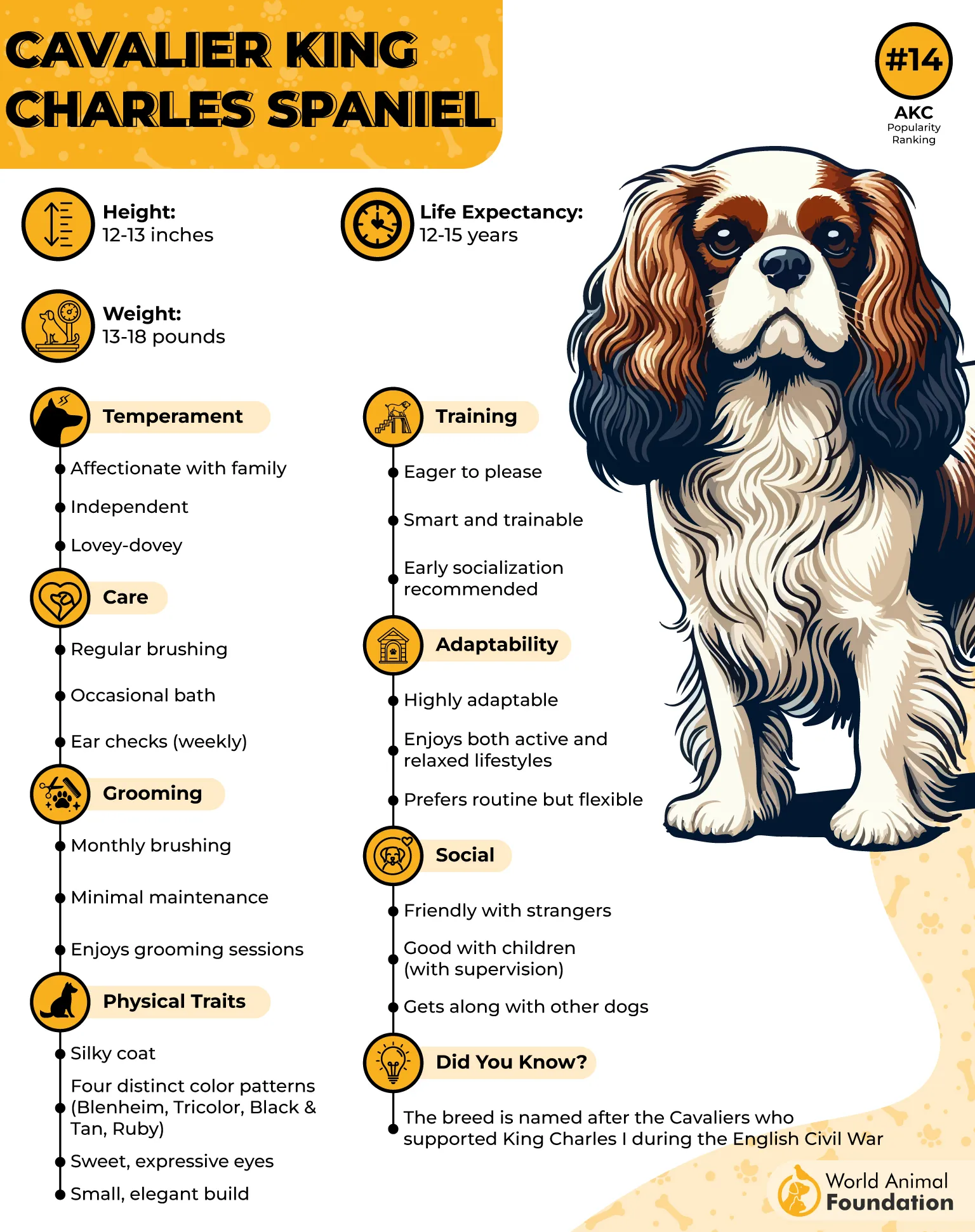
They are also gentle and highly intuitive, picking up on moods and responding with affection. This sensitivity helps explain why they’re often recommended for therapy and emotional support work.
Despite their delicate size, Cavaliers are playful and thrive on interaction. They enjoy games and walks, which give them both exercise and bonding time with their humans.
Because of their affectionate nature, Cavaliers dislike being left alone for long. They’re best suited to households where someone is often around to share companionship.
Quick Tips
Keep them close—they love lap time and cuddles.
Balance play with quiet companionship.
Avoid leaving them alone for long periods.
3. Labrador Retriever

Labrador Retrievers are world-famous for their cheerful temperament and unshakable loyalty. They’re consistently listed among the most people-oriented dogs, with an instinct to form strong emotional ties.
Labs excel at reading human emotions and offering comfort. Their friendly nature makes them one of the most popular choices for therapy and assistance work.
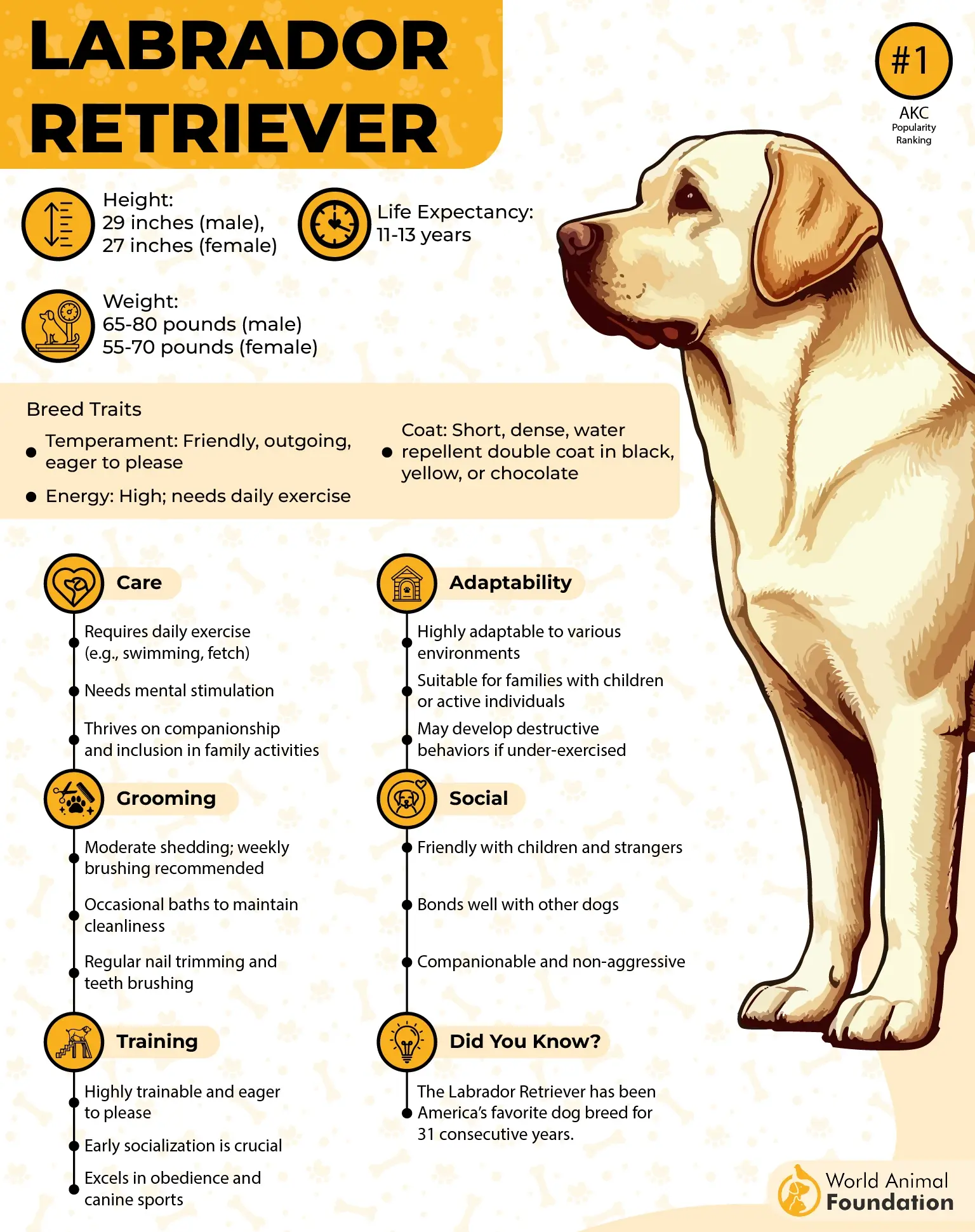
Beyond their emotional sensitivity, Labs are energetic and love activity. From swimming to fetch, they thrive on play that doubles as bonding time.
Their loving, patient character makes them especially good with children. According to the AKC, families often choose Labradors not only for their loyalty but also for their ability to blend seamlessly into household life.
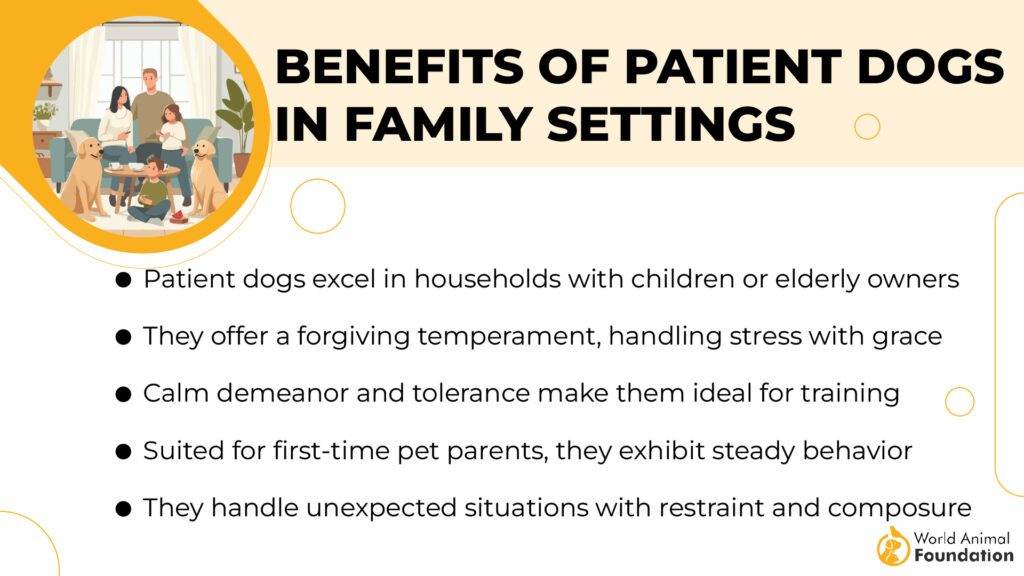
Because they crave interaction, Labs can become anxious if ignored. Consistent attention, combined with both exercise and affection, helps them flourish.
Quick Tips
Provide plenty of daily exercise and play.
Offer affection often—they thrive on closeness.
Keep them mentally engaged with tasks or games.
4. Border Collie
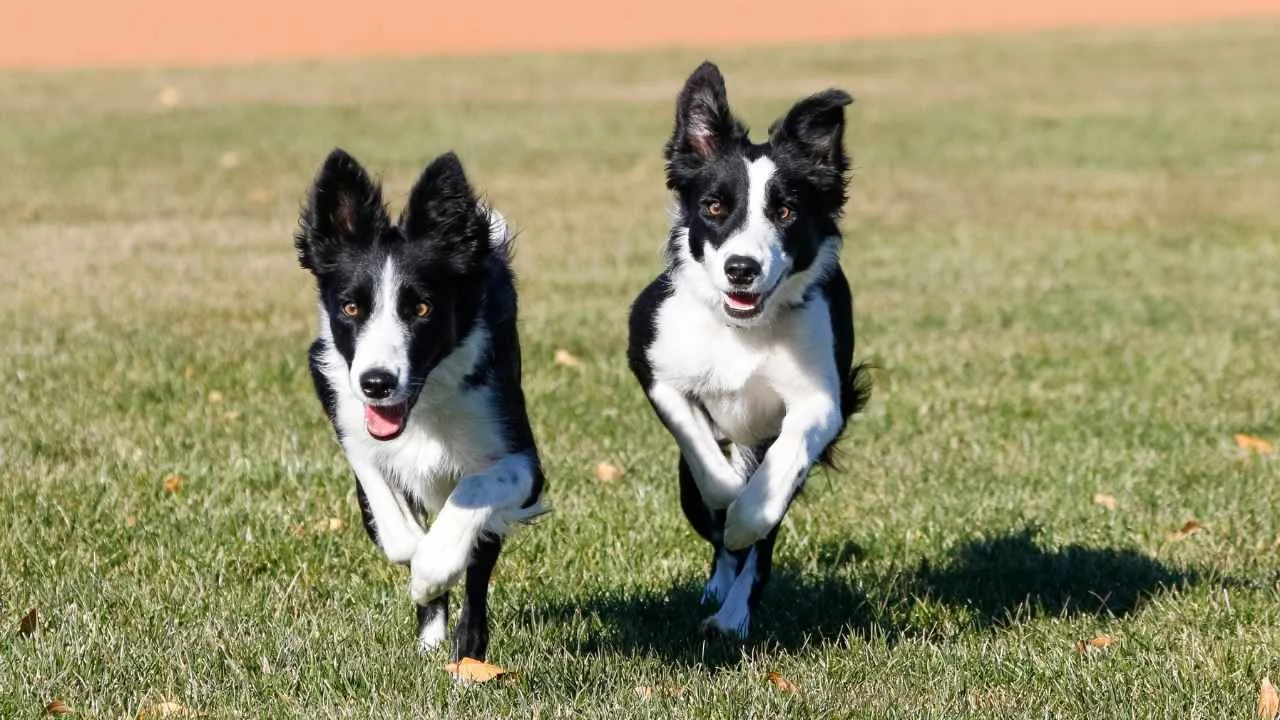
Border Collies are famous for their intelligence, but their emotional depth is just as striking. Known for forming strong bonds, they often mirror their owner’s moods and thrive on close companionship.
These dogs are happiest when they have a job to do. Whether it’s herding, training, or puzzle games, their need for purpose strengthens the connection between them and their humans.
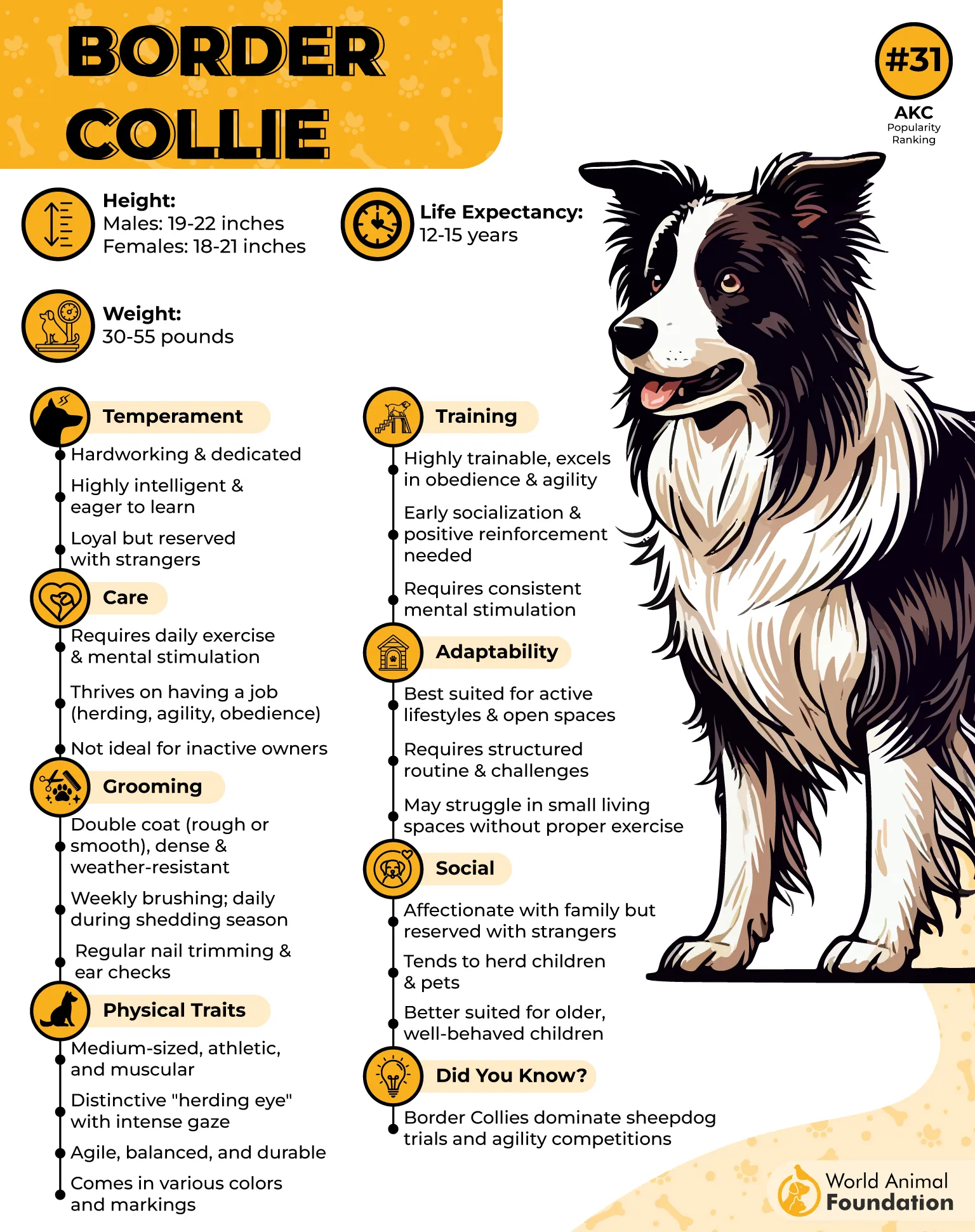
Their emotional intelligence shines in how they respond to people. Border Collies can sense stress or joy, often offering comfort or excitement to match the moment.
Because they’re energetic, they connect through action. Long walks, agility, or fetch aren’t just exercise—they’re opportunities to build trust and affection.
While deeply devoted, they can grow restless if not mentally challenged. Keeping their minds busy ensures their bond with family stays strong and positive.
Quick Tips
Give them jobs or training tasks daily.
Use play as a way to connect emotionally.
Challenge their minds with puzzles and new skills.
5. Golden Retriever
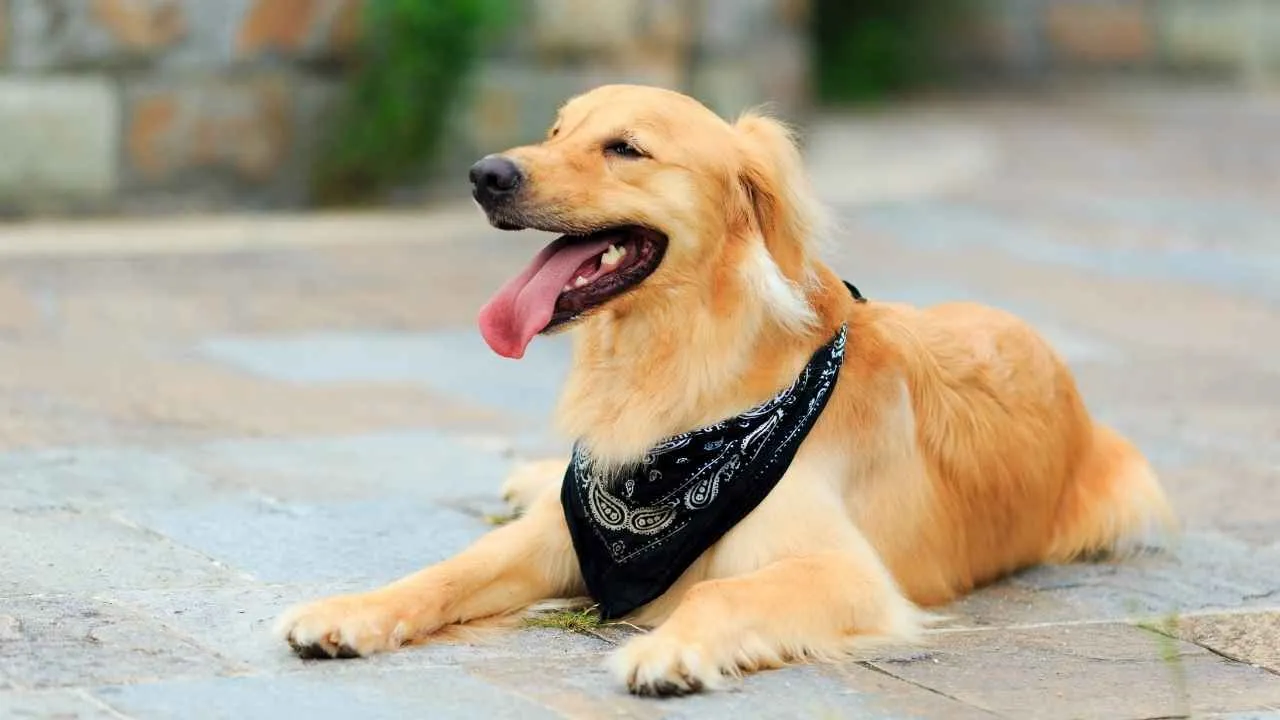
Golden Retrievers are beloved for their affectionate, gentle nature, making them one of the most emotionally connected breeds. They naturally form close, trusting relationships with their families.
These dogs are intuitive and quick to pick up on human emotions. They often comfort their owners during tough times, which explains why they’re so popular as therapy dogs.

Their playful, easygoing personality makes them excellent companions for both kids and adults. Time spent playing fetch or swimming often doubles as bonding moments.
Golden Retrievers are also extremely loyal, thriving on inclusion in family life. They don’t like being left out, preferring to be part of every activity.
Because of their eagerness to please, they’re easy to train and respond positively to affection and praise. This makes them not just obedient, but emotionally invested partners.
Quick Tips
Give them regular play and family interaction.
Use positive reinforcement—they love to please.
Don’t leave them alone for long; they crave closeness.
6. Australian Shepherd
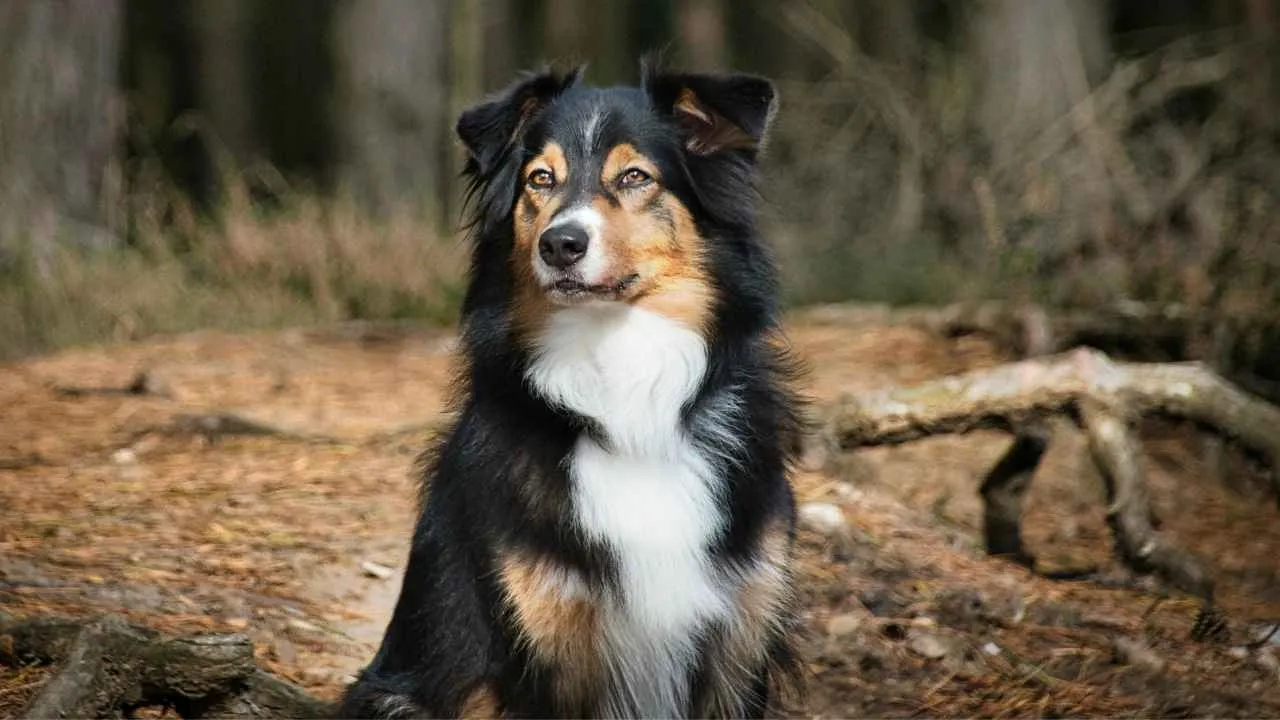
Australian Shepherds are energetic dogs with a deep need for human connection. They’re known for forming strong bonds through loyalty and attentiveness.
Bred for herding, they thrive when given purpose. Training sessions or agility challenges keep them mentally sharp while strengthening their emotional ties to owners.
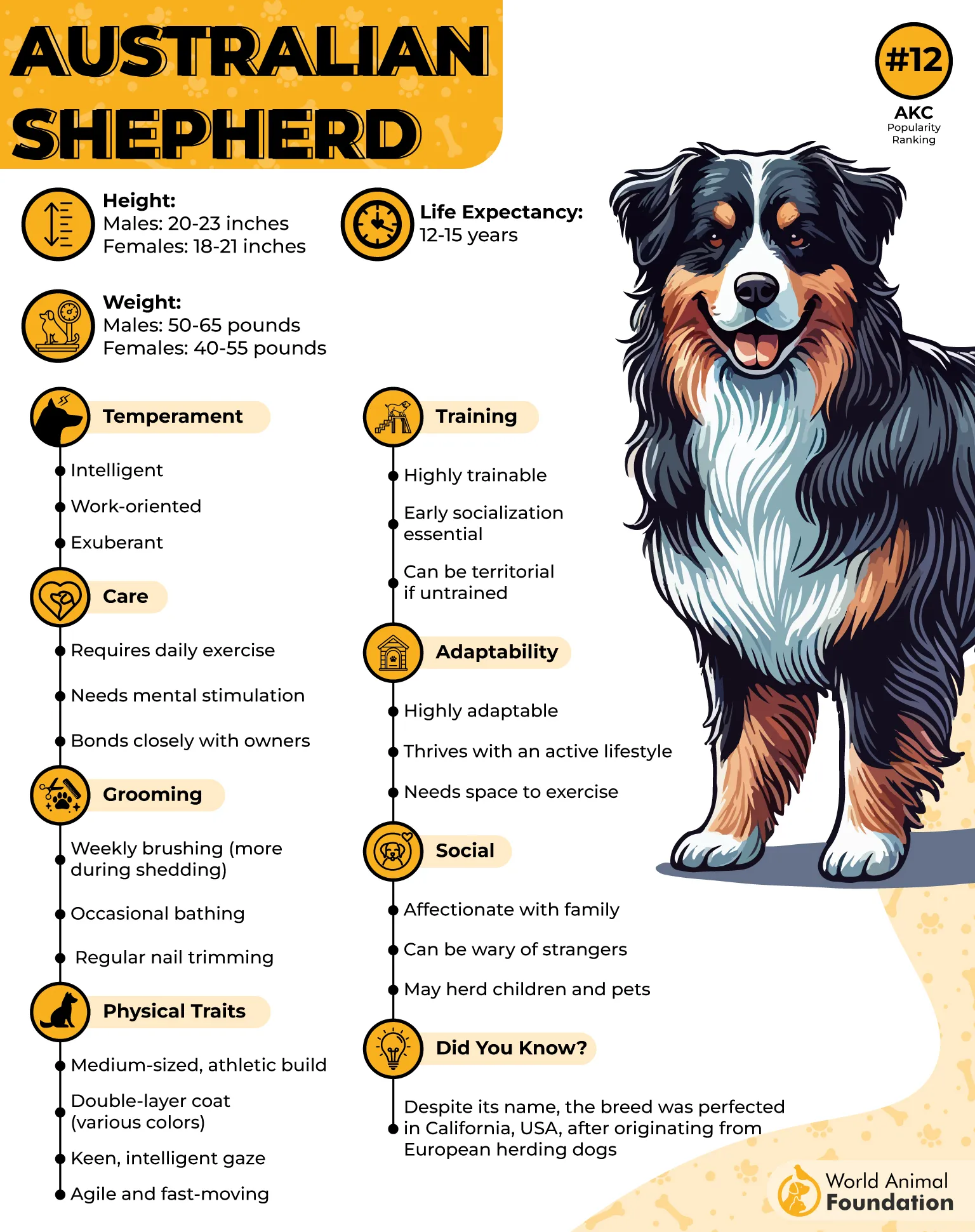
These dogs are also remarkably perceptive. They pick up on subtle cues, from tone of voice to mood shifts, and often respond with affection or alertness.
Their playful and adventurous side makes them great companions for active families. Hikes, runs, or games give them both physical and emotional fulfillment.
Because of their devotion, Australian Shepherds may become anxious when separated for long stretches. They’re happiest when close to their humans and included in everyday life.
Quick Tips
Keep them busy with physical and mental activities.
Include them in outdoor adventures and family fun.
Avoid long separations to prevent anxiety.
7. Beagle

Beagles are cheerful dogs that bond closely with their families. Known for loyalty and warmth, they enjoy forming deep emotional ties.
Their playful spirit and curiosity make them wonderful companions for both kids and adults. They love exploring outdoors, often turning walks into shared adventures.
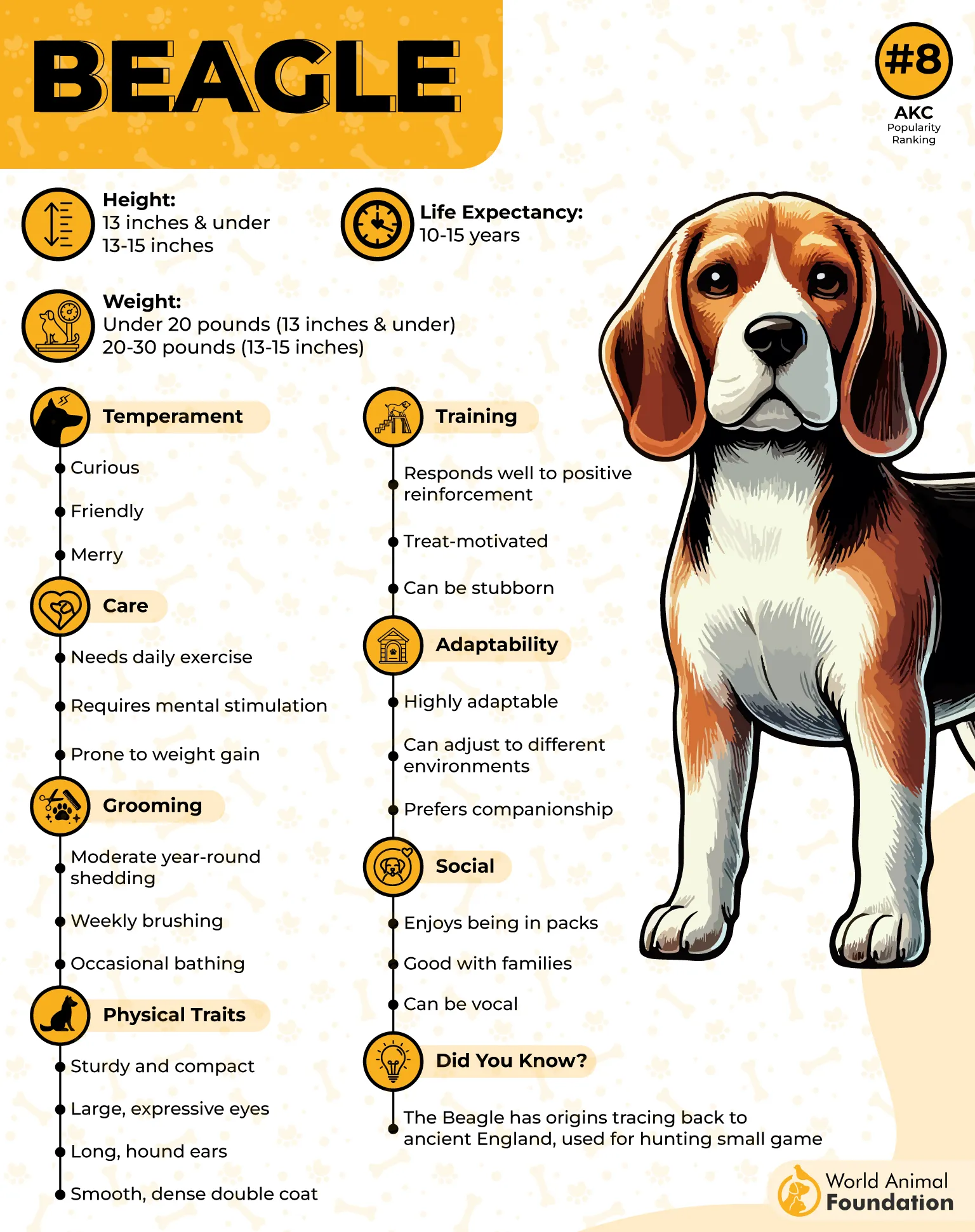
Beagles are pack-oriented, which explains their strong desire for closeness with people. They thrive in family settings where affection and attention are consistent.
Despite their small size, they’re energetic and need regular activity. Games and outdoor play not only keep them fit but also strengthen the owner-dog bond.
Because of their devotion, Beagles dislike being left alone for long. They can become vocal or restless if isolated, preferring to stay close to loved ones.
Quick Tips
Give them plenty of exercise and outdoor time.
Provide companionship—they don’t enjoy being alone.
Keep activities playful to match their fun-loving nature.
FAQs
1. Can certain dog breeds sense their owner’s emotions better than others?
Yes, some breeds are highly attuned to human feelings and develop a strong sense of emotional awareness. Breeds like Border Collies, Golden Retrievers, and Cavalier King Charles Spaniels often show a deep bond with their human family members, responding to stress or joy with tail wagging devotion. This sensitivity is why they’re considered among the most popular dog breeds for companionship.
2. Do highly bonded dogs make good therapy or emotional support animals?
Absolutely. Dogs that crave closeness, sometimes called “velcro dogs,” tend to excel as emotional support animals or even service dogs. Their playful and warm-hearted nature, combined with a protective instinct and eagerness to please, makes them reliable furry friends who can provide comfort to individuals seeking daily reassurance.
3. Can emotional intelligence vary even within the same breed?
Yes. While certain breeds are known for being highly intelligent and emotionally connected, every dog is unique. Factors like living situation, mental stimulation, and time spent with their owners play a big role. With consistent love and attention, even popular dogs like Labs or Beagles can develop expressive eyes, charming personalities, and an unshakable bond with their owners.
Conclusion
Dogs connect with people in ways that feel almost magical, offering unconditional love and companionship that enriches daily life.
Some of the most popular dog breeds are known for their playful and tender nature, while others are prized for their protective instinct or highly intelligent problem-solving skills.
Breeds outside this list, such as the gentle giants like the Great Dane, the charming Shih Tzu with its hypoallergenic coat, or the expressive Shiba Inu, also form deep bonds with dog owners.
Each furry friend brings a unique personality, from velcro dogs that dislike separation anxiety to those eager to provide comfort in various environments.
For individuals seeking emotional support animals or service dogs, finding the right fit often depends on lifestyle, living situation, and the time spent together.
Whether through tail wagging greetings or highly attuned companionship, dogs remain one of the most loyal animals, tending always to their human family members.


